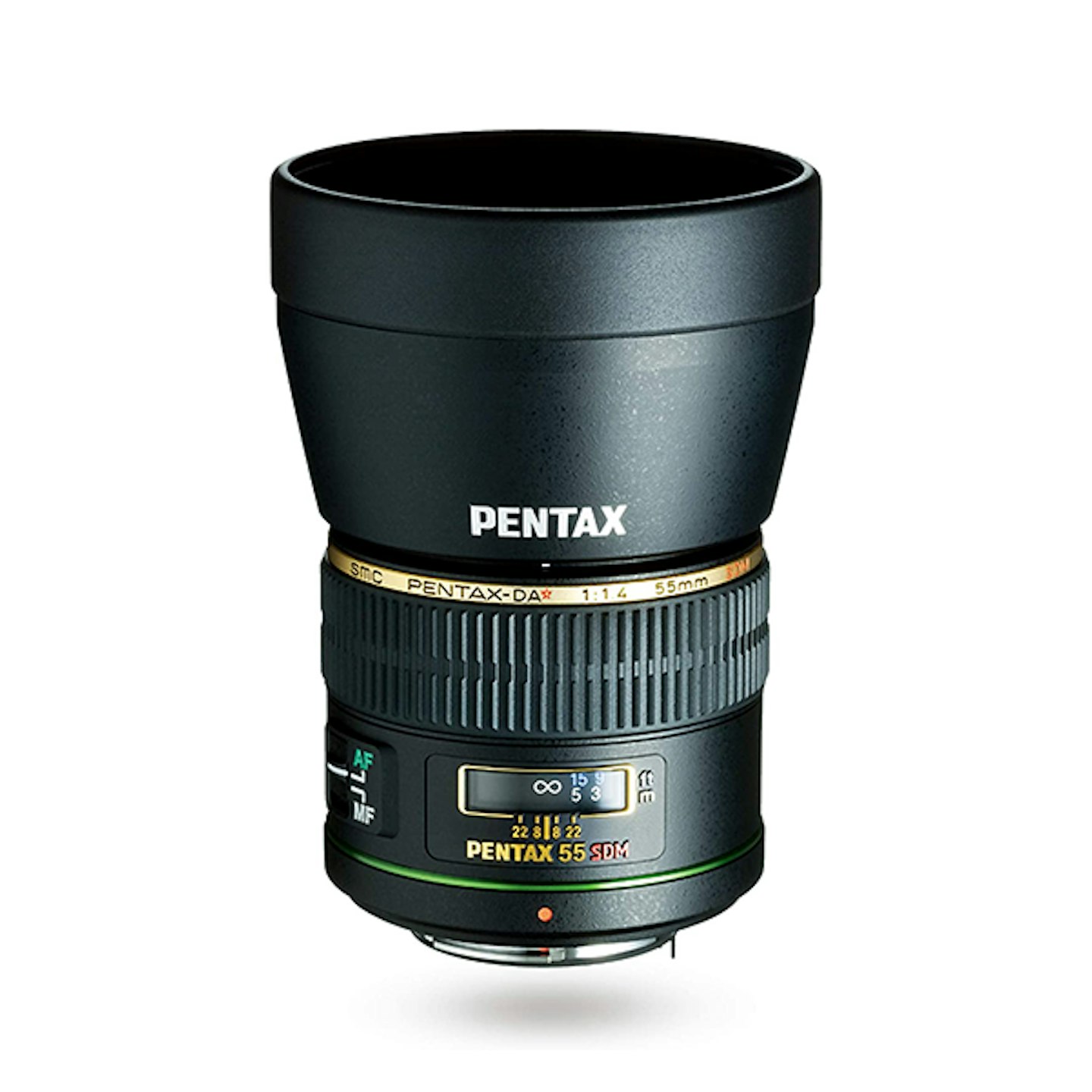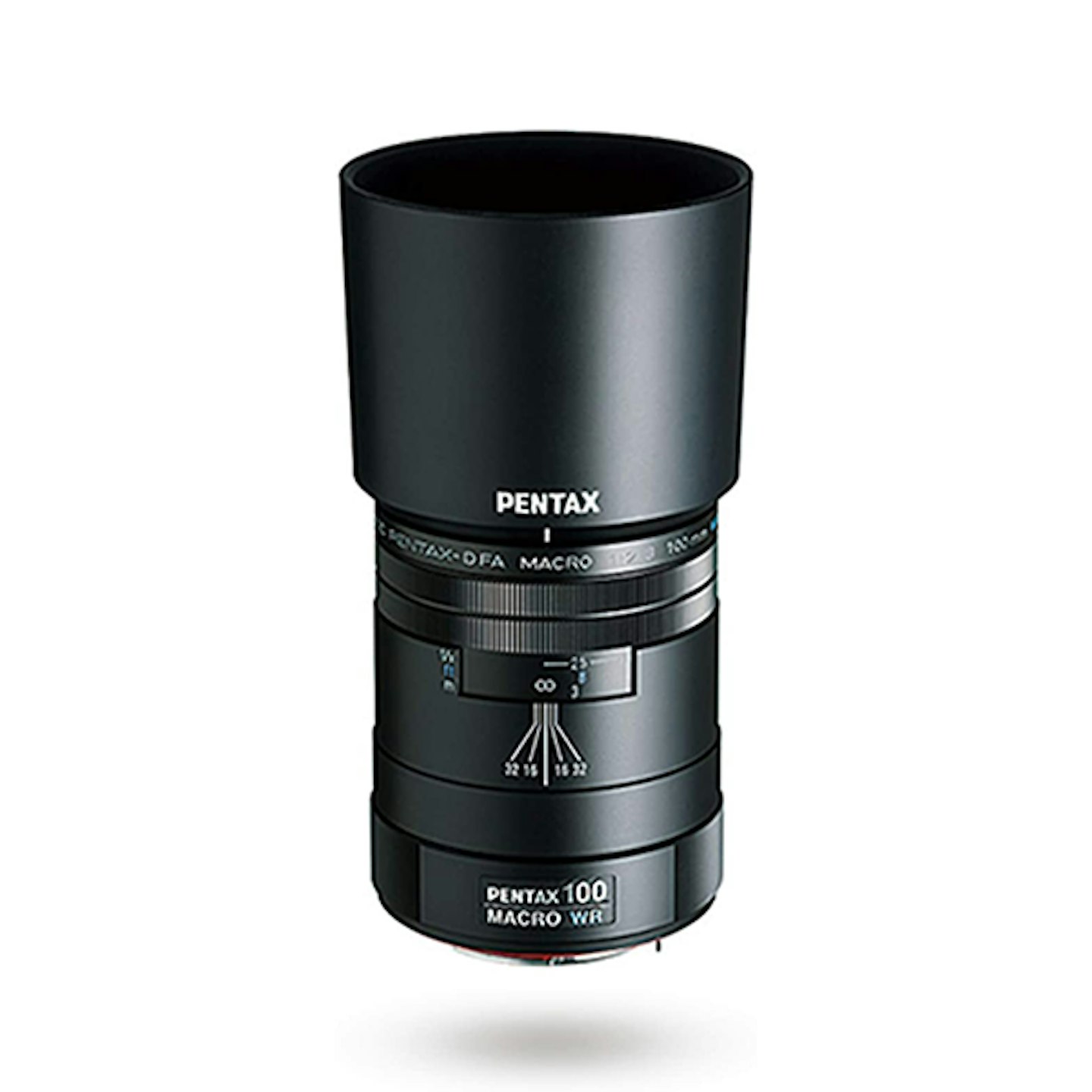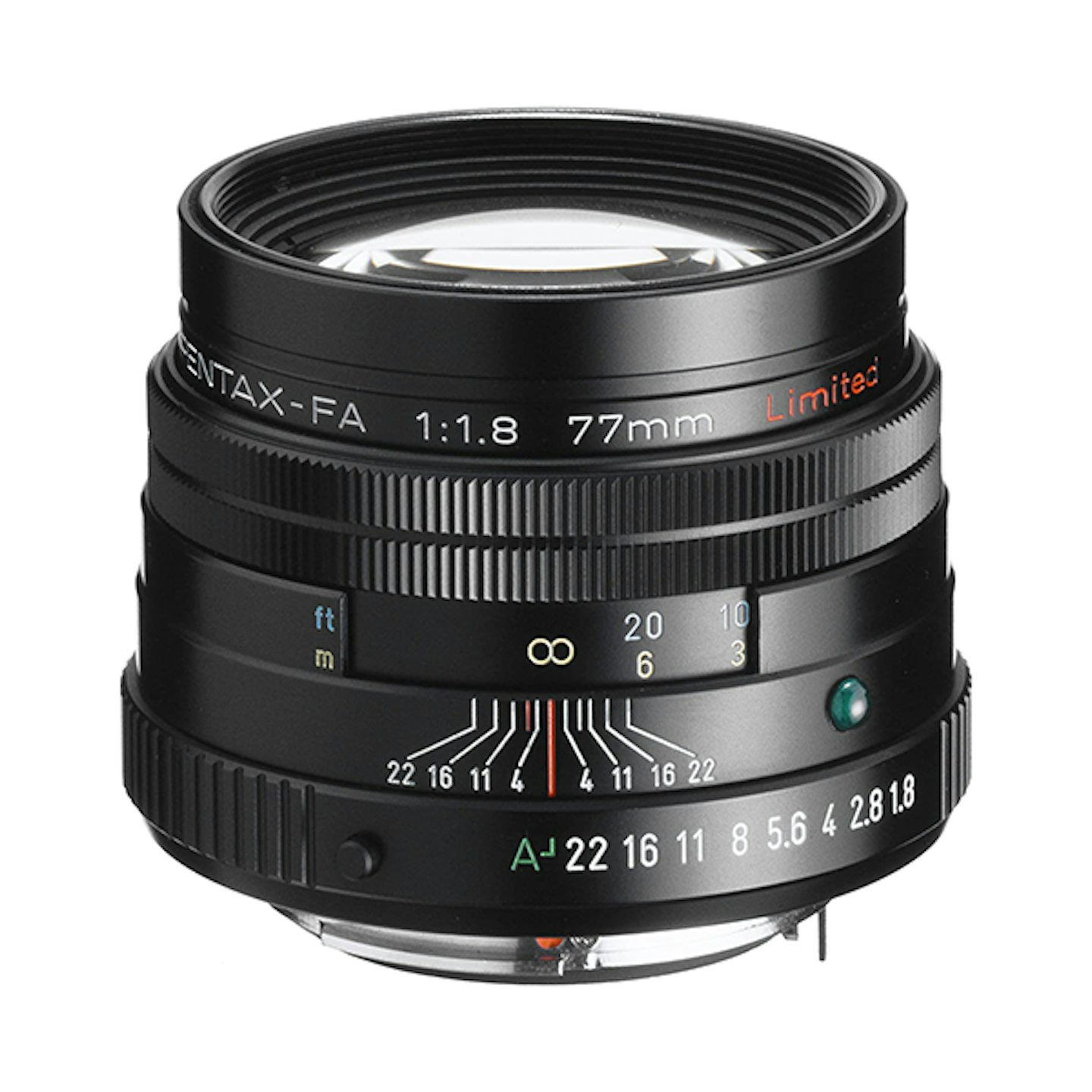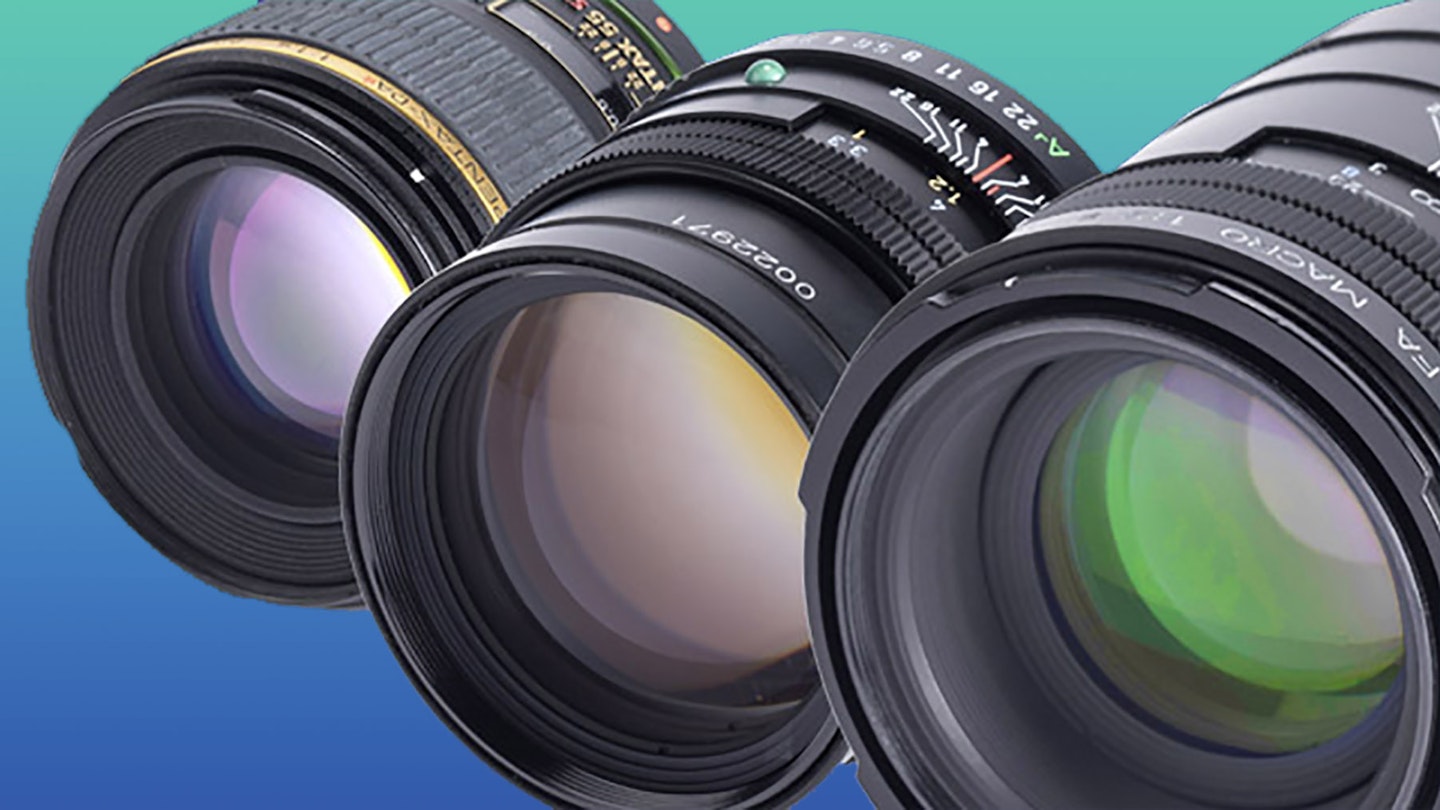Sharpness is always the key component we look for in a lens. Sure, build quality, autofocus and handling are important too, but what we really want is fantastic image quality. So we challenged ourselves to find the ultimate affordable Pentax DSLR glass on the market, asking the Japanese giant to send us its three sharpest lenses with a street price of under £1,000. We asked for primes only (ie no zoom), as the optical design of fixed focal length lenses generally results in the best image quality.
Best Pentax prime lens
 1 of 3
1 of 3Pentax 55mm f/1.4 DA* SDM
The 55mm f/1.4 is the only lens in this test made for APS-C DSLRs. It has a film equivalent of 82.5mm, so is ideal for portraits. It feels a little more plastic next to Pentax's metallic 77mm and 100mm lenses. But there's a well-sized focusing ring, a chunky AF/MF switch and a focus distance window. Constructed from nine elements arranged in eight groups, it weighs 375g. One of the few Pentax lenses to sport a built-in Supersonic Drive Motor (SDM), autofocus is marginally quieter, faster and more accurate than the other Pentax primes featured here. At the widest f/1.4 aperture details slightly lack contrast, and purple chromatic aberration is evident. This vastly improves at f/1.6. Pics are pin-sharp at f/2.8, with just a small amount of chromatic aberration. We noted a minor amount of vignetting and a negligible amount of barrel distortion. Spec Aperture: f/2.8-32 Minimum focus: 30.3cm Filter size: 49mm Size (DxL): 80.5x65mm Weight: 340g Pros Compact, robust build 1:1 macro capability Cons A little soft at f/2.8
 2 of 3
2 of 3Pentax 100mm f/2.8 Macro WR SMC D-FA
The 100mm is the only weather-resistant (WR) Pentax lens on test, and can withstand a heavy shower when attached to a WR Pentax body such as the K-1. It's tall, thin and portable with dimensions of 80.5x65mm, and weighs in at 340g. The front element racks out to achieve its maximum 1:1 macro setting, taking the total length to around 120mm. As with the Pentax 77mm lens to the left, the autofocus is loud, and takes time to find and lock onto a subject. But for macro use you'll most likely be manually focusing anyway, so this may not be a deal-breaker. The middle of the frame is sharp at its widest f/2.8 aperture, though it is a little lacking in contrast and displays some purple fringing (chromatic aberration). The corners are a little soft at f/2.8, and we didn't see strong edge-to-edge sharpness until f/8. There was no vignetting and no pincushion distortion to note. Spec Aperture: f/2.8-32 Minimum focus: 30.3cm Filter size: 49mm Size (DxL): 80.5x65mm Weight: 340g Pros Compact, robust build 1:1 macro capability Cons A little soft at f/2.8
 3 of 3
3 of 3Pentax 77mm f/1.8 SMC FA Limited
Created specifically for portraits, Pentax's 77mm f/1.8 Limited is a surprisingly compact and lightweight prime for this focal length. Measuring 48x64mm, it's small, but its price is anything but. Costing £829, this lens is the most expensive we looked at by a fair margin. As you'd expect for a top-end optic though, the 77mm feels luxurious and high quality. It's also refreshingly light and portable for a short telephoto lens with such a bright maximum aperture. It weighs just 270g, and its compact dimensions make the 77mm f/1.8 a joy to carry around and shoot with. The lens features a built-in lens hood which can be pulled out when required, and pushed back in. This means you don't have to carry an additional hood around – very handy! One reason the 77mm may be so light is that it lacks an autofocus motor. This is because Pentax cameras have a motor built-in. We tested the 77mm on the full-frame K-1 and found the focusing to be quite loud, producing a drill-like whir. It also took a moment to lock on to a subject, so this is a clear weak point. Manual focusing was much preferred – the focusing ring feels very responsive and there's a focus distance gauge so you can see where the focus has been set. Another nice touch is the manual aperture ring, which many modern lenses lack. This allows the aperture to be set from f/1.8-22 in full stop intervals. At f/1.8 we'd have liked the centre to be a little sharper, as this doesn't fully sharpen up until f/3.5, and we saw blooming in the corners until this value too. Some blue and green fringing is evident in the corners of our test pics. We found no vignetting or optical distortion. Spec Aperture: f/1.8-22 Minimum focus: 70cm Filter size: 49mm Size (DxL): 48x64mm Weight: 270g Pros Premium build quality Compact and lightweight Cons Images a little soft at f/1.8 Pricey
Asahi Optical Co Ltd probably isn’t a name you’ve heard of before, but this company, formed in 1938, is where Pentax started its journey to creating interchangable digital camera systems. The firm fulfilled military contracts for optical instruments leading up to WWII, and then went on to manufacture camera lenses and binoculars for companies such as Konica and Minolta. So it’s fair to say they know a thing or two about making top quality glass.
The Pentax name was acquired by Asahi Optical in 1957 and the company was renamed Pentax Corporation in 2002. In recent years, Pentax was integrated into Hoya, the optical glass manufacturer, but later became a subsidiary of the Ricoh Company Ltd. From 2013, Pentax has operated as Ricoh Imaging Company Ltd. One thing’s for certain, Pentax has a great heritage for creating cameras and lenses.
